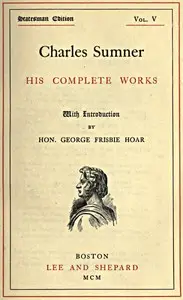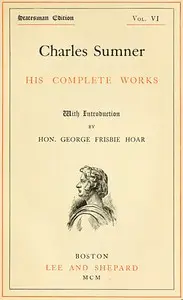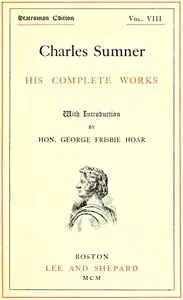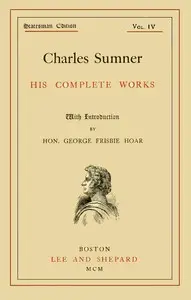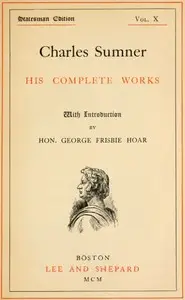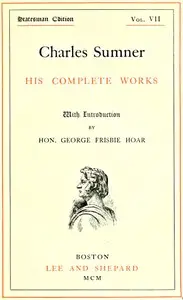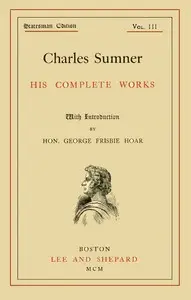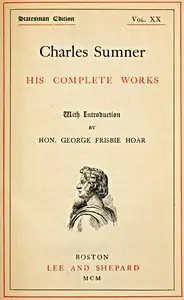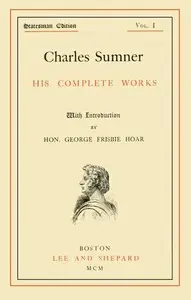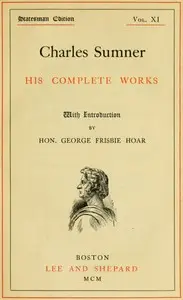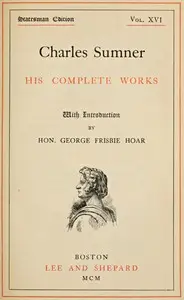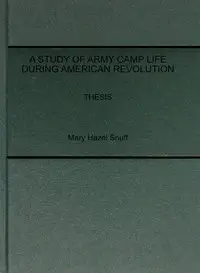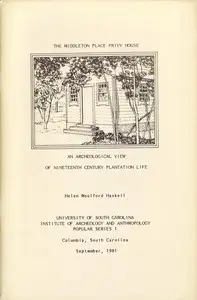"Charles Sumner: His Complete Works, Volume 09" by Charles Sumner is a historical narrative presenting a collection of speeches and writings from the influential abolitionist and senator. Exploring pivotal themes of civil rights, congressional authority during the Civil War, and the intricate legality of slavery and rebellion, this compilation reveals Sumner's fusion of legal, moral, and political reasoning in his pursuit of justice. Beginning with a powerful speech from May 19, 1862, Sumner champions the confiscation of rebel property and the emancipation of enslaved people, grounding his arguments in both historical precedent and legal interpretation to highlight the dual nature of the Civil War as rebellion and war. Through passionate rhetoric and historical context, Sumner sets the stage for a profound exploration of civil rights and governmental power amidst national turmoil, offering a snapshot of his unwavering commitment to freedom and national unity.
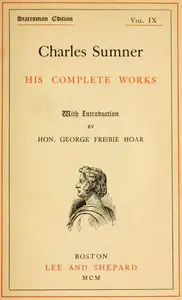
Charles Sumner: his complete works, volume 09 (of 20)
By Charles Sumner
Witness the fiery speeches of a senator during the Civil War era as he fights for freedom and justice, challenging the very foundations of slavery and rebellion.
Summary
About the AuthorCharles Sumner was an American lawyer, politician, and statesman who represented Massachusetts in the United States Senate from 1851 until his death in 1874. Before and during the American Civil War, he was a leading American advocate for the abolition of slavery. He chaired the Senate Foreign Relations Committee from 1861 to 1871, until he lost the position following a dispute with President Ulysses S. Grant over the attempted annexation of Santo Domingo. After breaking with Grant, he joined the Liberal Republican Party, spending his final two years in the Senate alienated from his party. Sumner had a controversial and divisive legacy for many years after his death, but in recent decades, his historical reputation has improved in recognition of his early support for racial equality.
Charles Sumner was an American lawyer, politician, and statesman who represented Massachusetts in the United States Senate from 1851 until his death in 1874. Before and during the American Civil War, he was a leading American advocate for the abolition of slavery. He chaired the Senate Foreign Relations Committee from 1861 to 1871, until he lost the position following a dispute with President Ulysses S. Grant over the attempted annexation of Santo Domingo. After breaking with Grant, he joined the Liberal Republican Party, spending his final two years in the Senate alienated from his party. Sumner had a controversial and divisive legacy for many years after his death, but in recent decades, his historical reputation has improved in recognition of his early support for racial equality.

